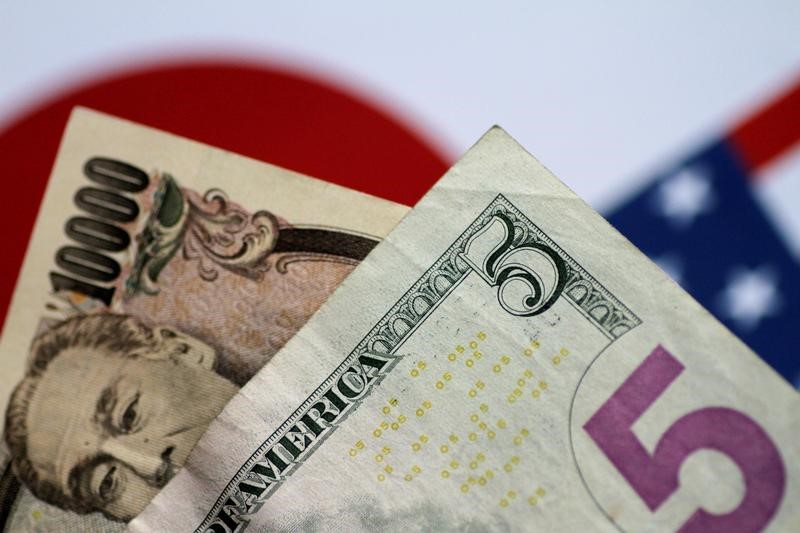Investing.com - The yen gained ground on Thursday as renewed risk aversion in the broader market underpinned safe haven demand, while the U.S. dollar held steady against a basket of the other major currencies after rebounding from two-month lows.
Market sentiment deteriorated overnight amid uncertainty over whether the U.S. and China can reach a deal on the sidelines of the upcoming G-20 summit meeting in Japan.
The dollar was down 0.2% to 108.28 per yen by 03:21 AM ET (07:21 GMT).
The yen, which tends to attract bids in times of market turmoil and political tensions, rallied 0.5% against the Australian dollar and advanced 0.15% versus the euro.
The risk aversion and falling stock markets are supporting the yen as usual,” said Bart Wakabayashi, Tokyo branch manager for State Street Bank and Trust.
“The Australian dollar’s underperformance is also a booster for the yen. Today’s Australian jobs data did not appear particularly poor, but apparently some in the market saw the data as another opportunity to sell the Australian dollar.”
Australia’s unemployment rate stayed stuck at 5.2% in May, underlining the case for another cut in interest rates as soon as next month.
The Australian dollar which fell the previous day on sliding crude oil prices, extended losses and fell to a two-week trough of 0.6905.
Despite mounting expectations that the Federal Reserve will ease monetary policy in coming months, the dollar fared better against other major currencies, such as the euro, pound and commodity currencies, which had troubles of their own.
The dollar index versus a basket of six major currencies was little changed at 96.912 after rising more than 0.3% overnight.
The index had dropped to 96.405 on Friday, its lowest since mid-April , following a sharp decline in long-term U.S. Treasury yields, which fell to near two-year lows last week after a soft U.S. jobs report bolstered expectations for an interest rate cut by the Fed.
The euro took a hit after U.S. President Donald Trump said on Wednesday he was considering sanctions over Russia’s Nord Stream 2 natural gas pipeline project and warned Germany against being dependent on Russia for energy.
Sterling slipped as British lawmakers on Wednesday defeated an attempt led by the opposition Labour Party to try to block a no-deal Brexit.
“Thanks to the poor performance of European currencies, the dollar has managed to rise although the latest inflation data enhanced Fed rate cut expectations,” said Takuya Kanda, general manager at Gaitame.Com Research Institute.
“The market now considers monetary easing by the Fed as a foregone conclusion. At the end of the day, the dollar will still remain a relatively high yielding currency even after a rate cut or two.”
Data released on Wednesday showed U.S. consumer prices barely rose in May, pointing to moderate inflation that together with a slowing economy increased pressure on the Fed to lower interest rates this year.
The euro was a shade higher at 1.1295 after retreating 0.35% overnight, while the pound slid to 1.2666 following a loss of 0.3% on Wednesday.
--Reuters contributed to this report
